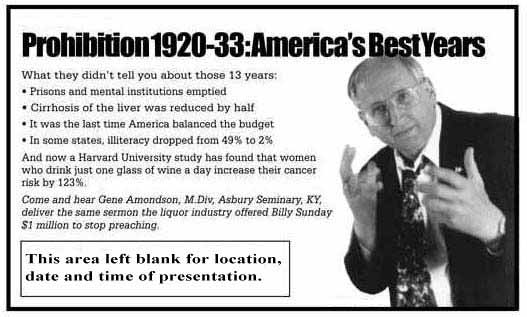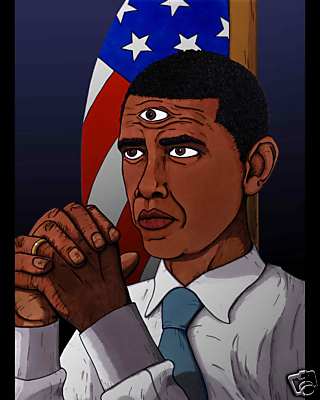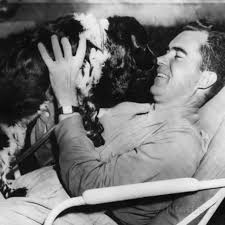(Partly-understood, partly I’m thinking “He’s not going to accomplish anything here), Conniption fits abound with regards to Ralph Nader’s announcement that he is running for president.
Electorally, Ralph Nader’s 2000 run for president wasn’t the most successful of presidential runs. Nader claims that his 2004 campaign will attract disgruntled Conservatives — who he’s trying to fool I do not know. It will be interesting to split up a hypothetical scenario figuring he claims a Democratic pollster had his candidacy do in Florida in 2000: (20% of his voters would’ve gone to Bush; 34% to Gore; the rest wouldn’t have voted) — Figures I will calculate in a later post.
What follows is a list of United States presidential elections with a third party of any consequence campaigning. High-lighted are those where a third party candidate had better electoral success than Ralph Nader did in the year 2000. Italicized are the examples where a third party beat one of the major two parties: Teddy Roosevelt’s Bull-Moose and of course the Whig Party throwing in the towel allowing the Republican Party to emerge.
The criteria for “of any consequence” is malleable, but generally (though not always) the threshold is two percent. Electoral success does not always translate into lack of consequence, however. The Prohibition Party kicked around for a time, and had success in getting their platform enacted into law. The Green-back Party fused quickly fused with the Democratic Party. The Populist Party endorsed William Jennings Bryan for his runs at president.
The third party candidacies of (Trent Lott’s mentor) Strom Thurmond and Henry Wallace weighed heavily on Truman’s campaign strategy. He misjudged the Southern Democrats revolt in his electoral calculations, but ultimately overcame it. With regards to Wallace to his left, his campaign strategy was to send out Eleanore Roosevelt, among others, to belittle the party, and practice a little bit of red-baiting.
The fear of the Socialists, and even the fourth placed Communists, weighed heavily on Franklin Roosevelt’s presidency. (Anti-capitalist sentiment was, understandably, in the air. “The Revolution Must be Stopped.”)
Millard Freedman was the reluctant candidate of the No-Nothings in 1856.
The Nation article linked above tells the story of the third party dynamics of 1844.
2000
Democrat Albert Gore: 48.38% … 271 50.37%
Republican George Bush: 47.87% … 266 49.44%
Green Ralph Nader: 02.73% … 000 00.00%
1996:
Democrat William Clinton: 49.24% 379 70.45%
Republican Robert Dole: 40.71% 159 29.55%
Reform Ross Perot: 08.40% 000 00.00%
1992:
Democrat William Clinton: 43.01% 370 68.77%
Republican George Bush: 37.45% 168 31.23%
Independant Ross Perot: 18.91% 000 00.00%
1980:
Republican Ronald Reagan: 50.75% 489 90.89%
Democrat James Carter: 41.01% 49 9.11%
Independant John Anderson: 6.61% 00 0.00%
1968:
Republican Richard Nixon 43.42% 301 55.95%
Democrat Hubert Humphrey 42.72% 191 35.50%
American Independant George Wallace 13.53% 046 08.55%
1948:
Democrat Harry Truman 49.55% 303 57.06%
Republican Thomas Dewey 45.07% 189 35.59%
States Rights Strom Thurmond 02.41% 039 07.34%
Progressive Henry Wallace 02.37% 000 00.00%
1932:
Democrat Franklin Roosevelt 57.41% 472 88.89%
Republican Herbert Hoover 39.65% 059 11.11%
Socialist Norman Thomas 02.23% 000 00.00%
1924:
Republican Calvin Coolidge 54.04% 382 71.94%
Democrat John Davis 28.82% 136 25.61%
Progressive Robert LaFollete 16.60% 013 02.45%
1920
Republican Warren Harding 60.32% 404 76.08%
Democrat James Cox 34.15% 127 23.92%
Socialist Eugene Debs 03.41% 000 00.00%
1916
Democrat Woodrow Wilson 49.24% 277 52.17%
Republican Charles Hughes 46.12% 254 47.83%
Socialist Allen Benson 03.19% 000 00.00%
1912
Democrat Woodrow Wilson 41.84% 435 81.92%
Progressive Theodore Roosevelt 27.40% 088 16.57%
Republican William Taft 23.17% 008 01.51%
Socialist Eugene Debs 05.99% 000 00.00%
1908
Republican William Taft 51.57% 321 66.46%
Democrat William Bryan 43.04% 162 33.54%
Socialist Eugene Debs 02.83% 000 00.00%
1904
Republican Theodore Roosevelt 56.42% 336 70.59%
Democrat Alton Parker 56.42% 336 70.59%
Socialist Eugene Debs 02.98% 000 00.00%
1892
Democrat Grover Cleveland 46.02% 277 62.39%
Republican William Reid 43.01% 145 32.66%
Populist James Field 08.51% 022 04.95%
Prohibition John Bidwall 02.24% 000 00.00%
1888
Republican Benjamin Harrison 47.82% 233 58.1%
Democrat Grover Cleveland 48.62% 168 41.9%
Prohibition John Brooks 2.19% 000 00.0%
Union Labor Alson Streeter 1.29% 000 00.0%
1884
Democrat Grover Cleveland 48.50% 219 54.6%
Republican James Blaine 48.25% 182 45.4%
Greenback Benjamin Butler 01.74% 000 00.0%
Pohibition John St. John 01.47% 000 00.0%
1880
Republican James Garfield 48.27% 214 58.0%
Democrat William Hancock 48.25% 155 42.0%
Greenback James Weever 03.32% 000 00.0%
1860 (a unique case to say the least, so nothing highlighted.)
Republican Abraham Lincoln 39.82% 180 59.4%
Southern Democrat John Breckenridge 18.10% 072 23.8%
Constitution Unionist John Bell 12.62% 039 12.9%
Democrat Stephen Douglas 29.46% 012 04.0%
1856
Democrat James Buchannan 45.28% 174 58.8%
Republican John Fremont 33.11% 114 38.5%
No-Nothings Millard Freedman 21.53% 008 02.7%
1852
Democrat Franklin Pierce 50.84% 254 85.8%
Whig Winfield Scott 43.87% 042 14.2%
Free Soil John Hale 04.91% 000 00.0%
1848
Whig Zachary Taylor 47.28% 163 56.2%
Democrat Lewis Cass 42.49% 127 43.8%
Free Soil Martin Van Buren 10.12% 000 00.0%
1844
Democrat James Polk 49.54% 170 61.8%
Whig Henry Clay 48.08% 105 38.2%
Liberty James Birney 02.30% 000 00.0%
1832
Nat’l Democrat Andrew Jackson 54.23% 219 76.0%
Nat’l Republican Henry Clay 37.42% 049 17.0%
Ind. Democrat John Floyd 0.00% 011 03.8%
Anti-Masonic William Wirt 7.78% 007 02.4%




